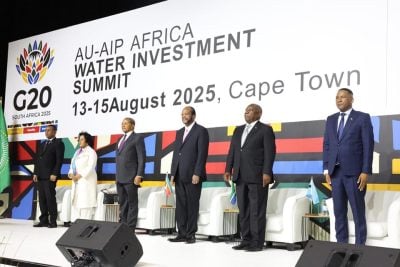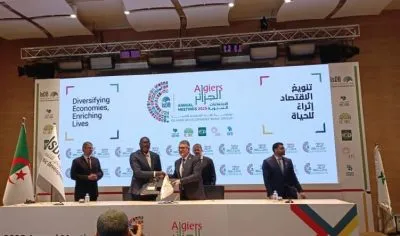This article was produced with the support of United Nations Economic Commission for Africa (ECA)
In a wide-ranging presentation on key recent economic and social development trends on the continent, he highlighted both risk factors as well as opportunities while challenging the continent’s leadership to do more to solve longstanding issues.
“Growth remains very limited in Africa compared to Africa’s potential and resources,” he said.
The dependence on raw commodity exports remains a key obstacle to meaningful progress, increasing the vulnerabilities of African economies by keeping them bound to the fluctuations of commodity prices globally.
Africans are also reeling from the impact of high food prices as a consequence of Russia’s war against Ukraine. High inflation averaged 18.3% in 2023. Higher interest rates, which led to an increase in national debt, are also causing more hardship for Africans.
Addressing the gap between Africa’s potential and resources is critical given its real costs to millions across the continent. Elhiraika pointed to potential areas where this gap can be addressed, starting with governments reducing trade costs in Africa, including by implementing the African Continental Free Trade Agreement.
Stronger tax collection is another, and the ECA has enabled African countries to strengthen capacity and share knowledge in this regard.
Yet despite challenges, a silver lining of the past year has been the particularly strong performances by some countries, led by Niger, whose oil exports are projected to add a robust 12.8% to the country’s economy in 2024.
Inflation is also set to decelerate in the short and medium term while foreign direct investment has risen across most subregions.
It is anticipated that regional economic growth will accelerate in 2024, peaking at 3.5% and reaching 4.2% in 2025.
Elhiraika stressed the urgency of devising innovative approaches to address the problems Africa faces. “We need a shift in production systems, consumption systems, technology and we need new leaders to bring new ideas and shift the focus of policy making and implementation to really create opportunities for the just transition that Africa needs.”

 Sign in with Google
Sign in with Google 



